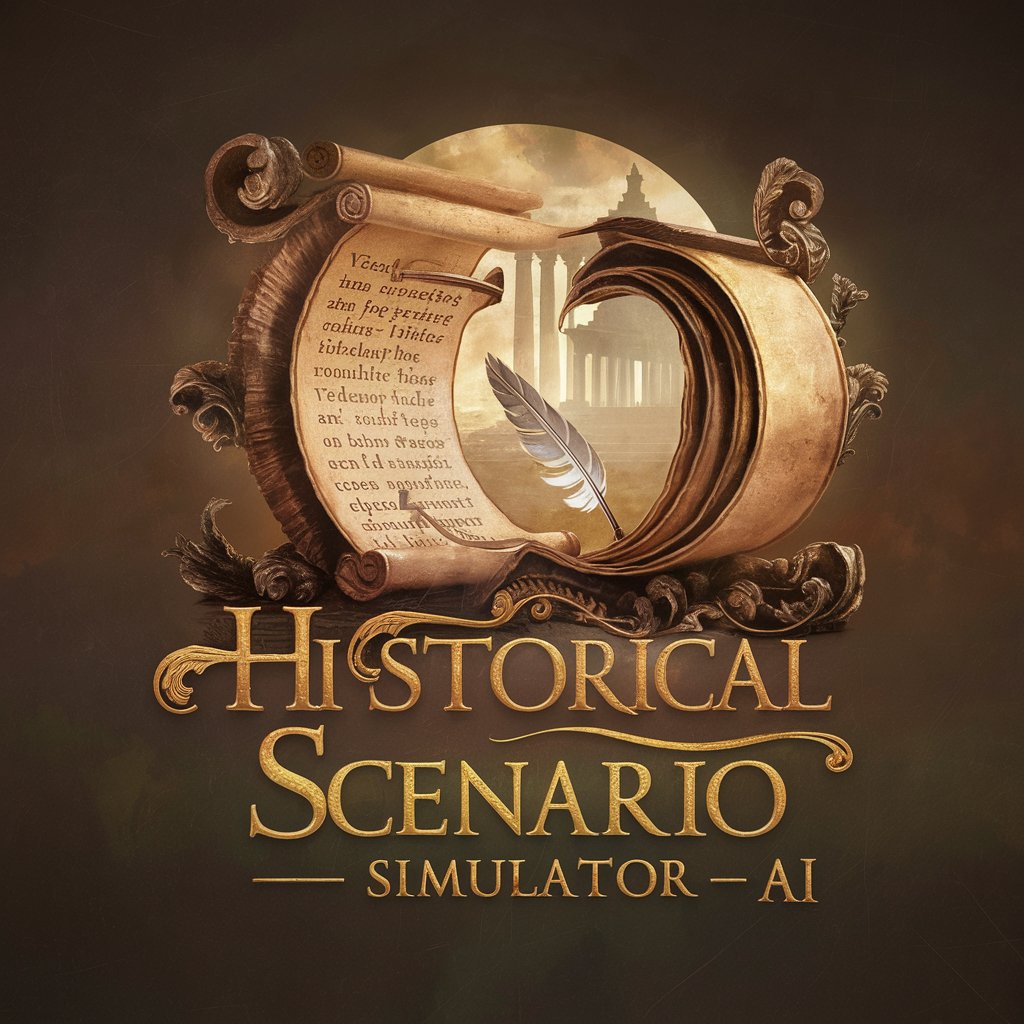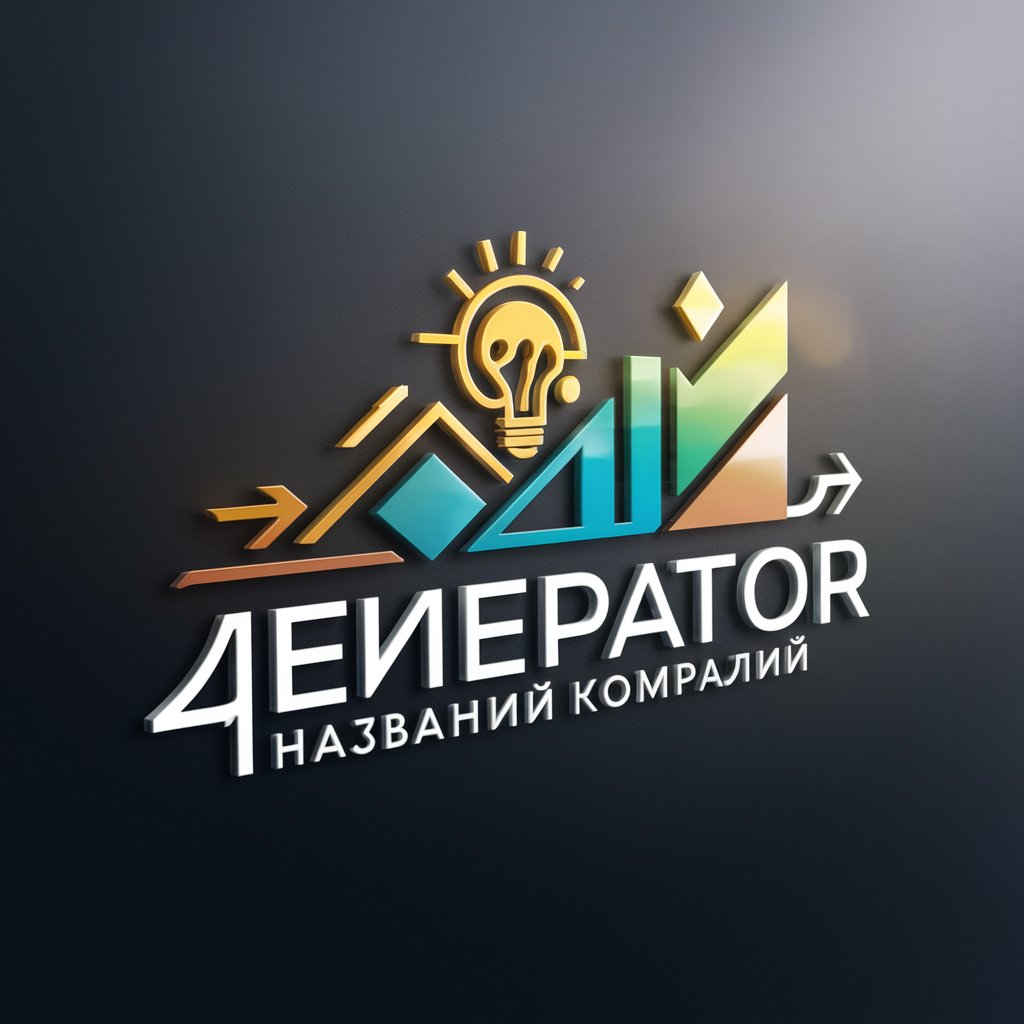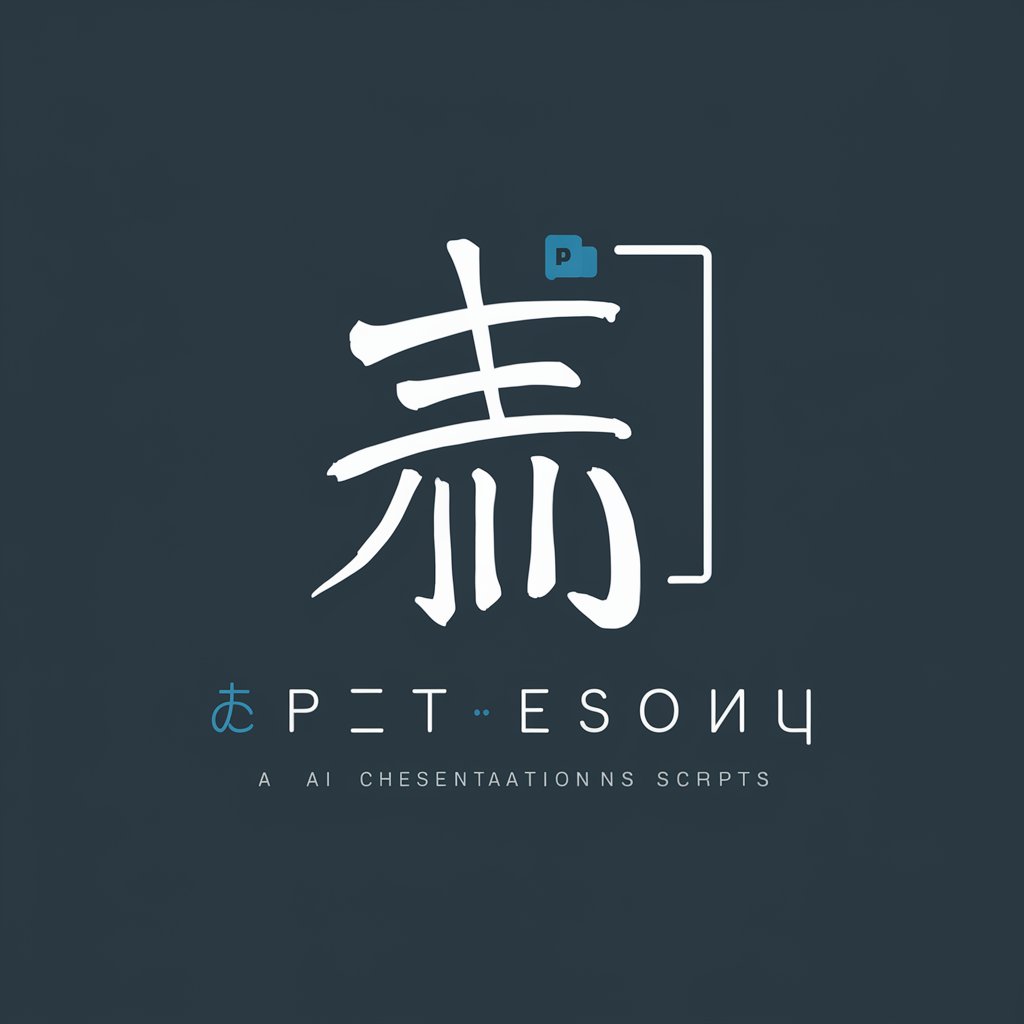Historical Scenario Simulator - Interactive History Experience

Welcome! Let's explore history together in a fun and immersive way.
Reviving History with AI
Imagine you're a merchant in a bustling medieval market. Describe the sights, sounds, and interactions.
You are a soldier in the Roman Legion during the height of the Roman Empire. What challenges do you face?
As an advisor to Queen Elizabeth I, how would you handle a political crisis in her court?
Step into the shoes of a scientist during the Renaissance. What discoveries are you pursuing, and what obstacles do you encounter?
Get Embed Code
Introduction to Historical Scenario Simulator
Historical Scenario Simulator is designed as an advanced educational tool for simulating detailed and accurate conversations and scenarios from various historical periods. It combines historical accuracy with interactive storytelling to provide users with immersive experiences of historical events, dialogues with historical figures, and era-accurate simulations. The design purpose is to make history accessible, engaging, and informative, catering to a diverse range of users from students to history enthusiasts. Examples include simulating a debate on the ethics of the Manhattan Project, experiencing a day in the life of a medieval tradesperson, or engaging in a dialogue with Cleopatra on the political dynamics of her reign. These scenarios leverage era-specific language, societal norms, and historical contexts to enrich learning and understanding. Powered by ChatGPT-4o。

Main Functions of Historical Scenario Simulator
Era-Accurate Dialogue Generation
Example
Generating a conversation between Thomas Jefferson and Alexander Hamilton about the creation of the U.S. financial system.
Scenario
In an educational setting, students can explore the foundational arguments for and against the establishment of a national bank, understanding the ideological divisions of the early United States.
Historical Figure Interaction
Example
Simulating an interview with Marie Curie about her discoveries and the challenges she faced.
Scenario
Users gain insights into the perseverance and dedication of Curie amidst societal challenges, encouraging discussions on gender, science, and ethics in historical and modern contexts.
First-Person Event Simulation
Example
Experiencing the Battle of Gettysburg from the perspective of a Union soldier.
Scenario
This immersive experience allows users to understand the complexities of war, the emotions of soldiers, and the strategic decisions made during pivotal moments in history.
Educational Content Integration
Example
Exploring the impacts of the Columbian Exchange through an interactive map and narrated events.
Scenario
Students can learn about the exchange of goods, cultures, and populations between the New and Old Worlds, and its profound impacts on global history.
Ideal Users of Historical Scenario Simulator
Educators and Students
Teachers seeking engaging methods to teach history and students wanting to deepen their understanding of historical events and figures. The simulator serves as a dynamic educational resource, making history interactive and accessible.
History Enthusiasts
Individuals with a passion for history who seek a deeper understanding of historical events and figures through interactive scenarios. The simulator offers them an engaging way to explore different periods and contexts.
Writers and Creators
Authors and content creators looking for accurate historical contexts to inspire their work or to ensure the authenticity of historical narratives. The simulator can provide detailed scenarios and dialogues for creative projects.

Using the Historical Scenario Simulator: A Guide
Start Exploring
Begin by accessing a trial at yeschat.ai, where you can explore the Historical Scenario Simulator without needing to log in or subscribe to ChatGPT Plus.
Choose a Scenario
Select a historical period or event of interest. This could range from ancient civilizations to more recent historical events.
Customize Your Experience
Input specific parameters such as the historical figure you wish to interact with, the language, or the particular event you want to explore.
Engage and Learn
Interact with the simulated historical figures or environments. Ask questions, make decisions, and experience history unfolding based on your inputs.
Reflect and Explore Further
After your session, consider the outcomes and historical insights gained. Feel free to revisit different scenarios or periods for a broader understanding.
Try other advanced and practical GPTs
THE BUSINESS ANALYZER
Empowering Business Decisions with AI

Генератор названий компаний
Innovate Names with AI

Генератор доменных имен
Craft Unique Domains with AI Power

Adland Creative Director
Elevate Your Ads with AI-Powered Creativity

居家装潢风格设计师
Revolutionize Your Space with AI-Powered Design

👩⚕营养师(含卡路里&TDEE计算机)
AI-Powered Nutritional Insights

のTikTok Script Analyst
AI-Powered TikTok Script Insight
おかん
Empowering Conversations with AI

Sexy
Ignite your conversations with AI charm.

プレゼンテーションファイルから原稿を作成
Transform Slides into Narratives

My Best Friend
Your AI Companion for Emotional Wisdom

映画評論家
Deep insights into movies and TV shows, powered by AI.

Frequently Asked Questions about Historical Scenario Simulator
What is the Historical Scenario Simulator?
The Historical Scenario Simulator is an AI-powered tool designed to create immersive, interactive simulations of historical events and figures. It offers users the opportunity to explore various periods through engaging scenarios and dialogues.
Can I interact with specific historical figures?
Yes, you can simulate conversations with a wide range of historical figures. The simulator uses detailed historical data to inform the figures' responses, making the interactions as authentic as possible.
How accurate are the simulations?
The simulator prioritizes historical accuracy, drawing on extensive research and historical texts to inform each scenario. However, creative license is employed for engaging storytelling and to simulate hypothetical situations.
Are there educational applications for this tool?
Absolutely. The Historical Scenario Simulator serves as an educational tool, offering a dynamic way to learn about history, understand complex events, and appreciate diverse perspectives from the past.
Can I create my own historical scenarios?
Yes, the simulator offers flexibility in customizing scenarios. Users can input specific conditions, figures, or events to explore different historical outcomes or hypothetical situations.
